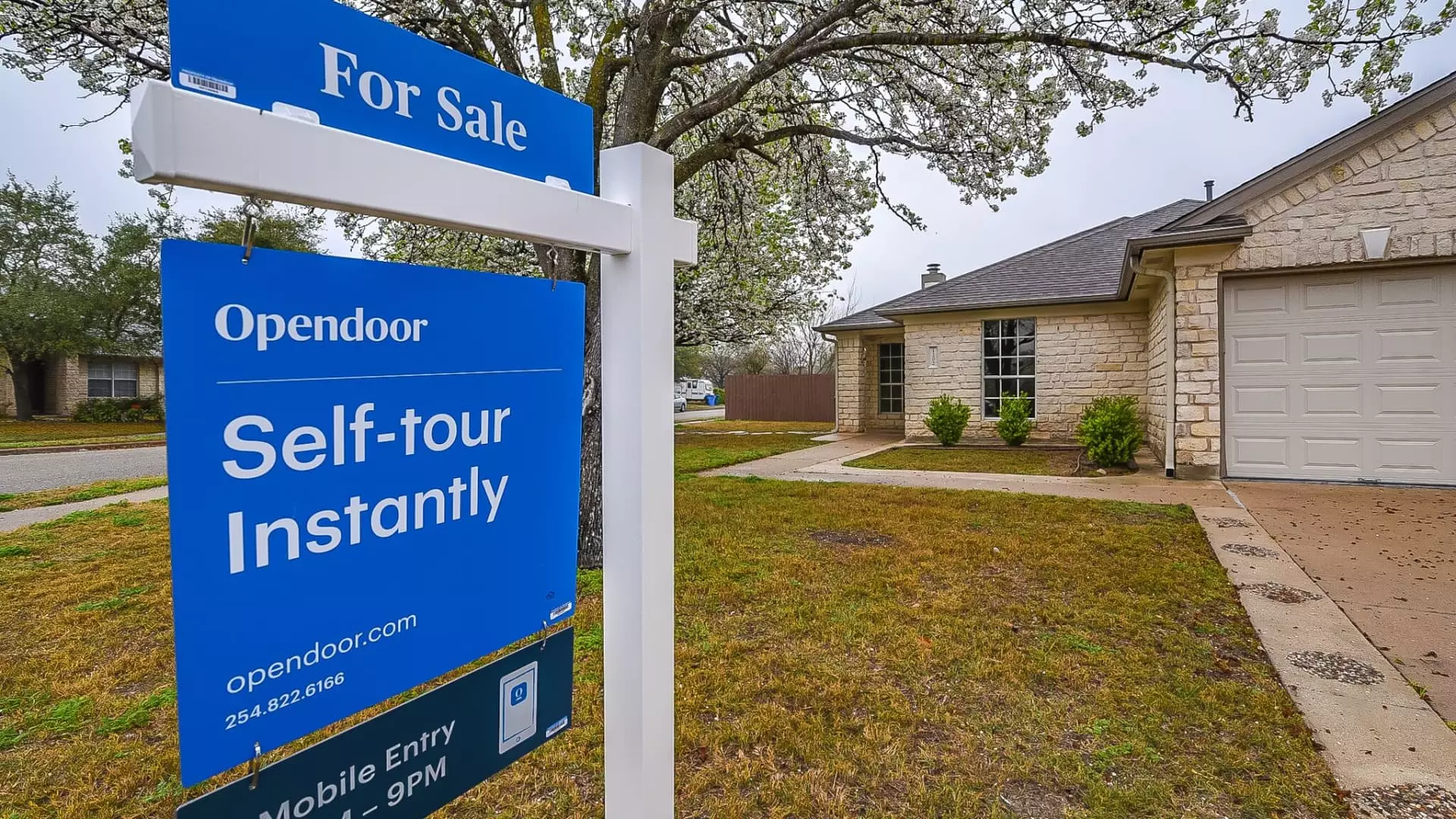Opendoor’s recent stock rally, soaring nearly five times since early July, offers a stark reminder of how volatile and susceptible to hype the modern market can be. While some investors celebrate this surge as a sign of renewed confidence in the real estate technology sector, a closer analysis reveals a fragile foundation rooted more in speculation than genuine business strength. The company’s past struggles—marked by a dramatic stock decline, revenue erosion, and liquidity fears—cast long shadows over its current optimism. This rapid rebound feels less like a validated turnaround and more like a speculative overshoot driven by influential hedge fund comments and market momentum.
The core problem lies in the company’s core business model. Opendoor’s reliance on a once-booming iBuying paradigm was fundamentally flawed in an environment of rising interest rates and declining housing affordability. The strategy that once fueled rapid growth has now become a liability, leaving the company heavily exposed to the downturn in the housing market. Its recent financials reflect this, with revenues plummeting by over 60% from the previous year, and guidance signaling further declines. These numbers starkly contrast the euphoric trading activity, exposing investors’ overexuberance disconnected from the company’s actual operational viability.
Market Sentiment vs. Business Reality
The recent rally, amplified by a notable hedge fund leader declaring a bullish stance, underscores a dangerous weakness in market dynamics. Jackson’s optimistic projection of $82 per share hinges on a future where Opendoor rebounds to profitability through increased market share and revenue growth. Yet, current indicators tell a more sober story. The company’s second-quarter revenue rose a mere 4%, narrowly avoiding a deeper loss, while its outlook for the upcoming year suggests a significant slowdown. Acquisition volumes are tracking down sharply, and marketing expenses are being cut precisely because the demand is evaporating.
This disconnect between market exuberance and fundamental performance exposes a critical flaw: many investors are doubling down on hope rather than evidence. The stock’s volatilities, driven by Reddit-style impulsiveness and hedge fund promotions, risk dragging the company into a roller coaster of false optimism. No matter how much Wheeler emphasizes strategic shifts—such as moving into a less capital-intensive referral model—the underlying business conditions remain challenging. Until those hardships resolve, any rally remains precarious, more a testament to market speculation than a sign of sustainable recovery.
The Strategic Missteps and Future Risks
Opendoor’s pivot toward diversifying its revenue streams into referral-based services appears superficially promising but warrants scrutiny. While reducing capital requirements is a sensible move, it does not fundamentally alter the dire economics of the real estate market at present. The key challenge is structural: the core iBuying model has proven vulnerable in a rising-rate climate, and the company’s ability to turn around its fortunes hinges on an optimistic future that isn’t as securely anchored as its investors believe.
Furthermore, the decision to cancel the reverse split—initially contemplated as a desperate attempt to maintain NASDAQ listing—highlights the precariousness of its financial position. This gamble was a sign of desperation, underscoring that the company remains financially fragile. It is naïve to expect bullish market sentiment alone to stabilize a business hemorrhaging cash amidst a deteriorating macroeconomic environment. The road to sustainable profitability in such an environment requires more than strategic rebranding; it demands a credible turnaround backed by solid financials and real market share growth—elements that are currently absent.
In essence, Opendoor’s recent rally is a textbook case of market overreaction, driven by herd mentality and unsubstantiated optimism. Despite the company’s rhetoric of strategic evolution, its fundamentals remain deeply troubled. Investors should approach with caution: what appears to be a revival is more likely a mirage, a fleeting flash of hope before the next wave of troubles. Truly, Opendoor’s path forward is fraught with risk, and unless it can convincingly demonstrate a break from its historic losses and structural weaknesses, its current cheerleading will soon give way to harsh realities. The market’s current enthusiasm is an illusion of recovery—a gamble at best, a ticking time bomb at worst.

